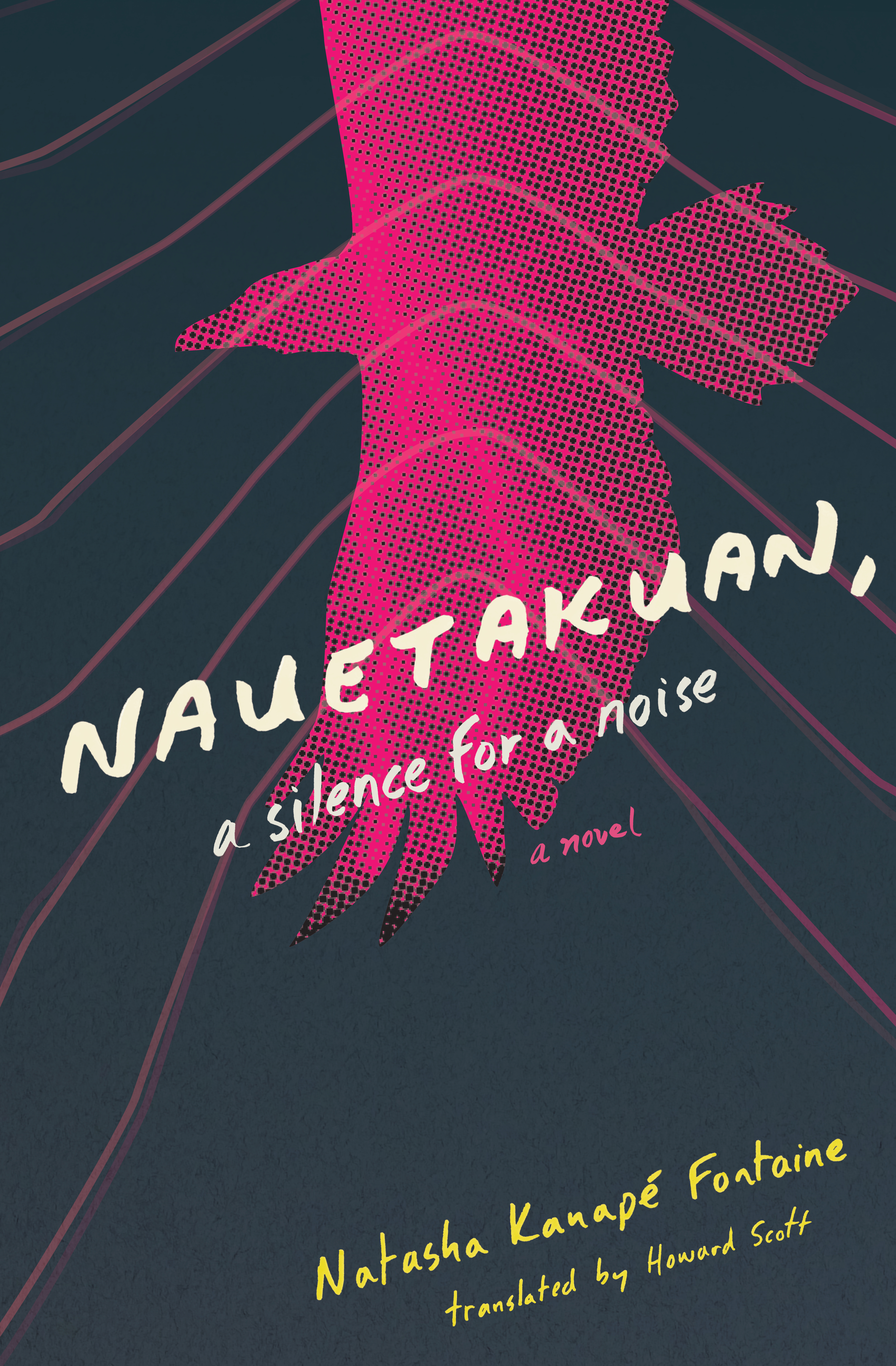There is a lot that Monica doesn’t know, about herself, her family, her past, her Innu identity.

Nauetakuan, a silence for a noise
Natasha Kanapé Fontaine
Translated by Howard Scott
Book*hug Press
$23.00
paper
236pp
9781771668941
Nauetakuan, translated from French by Howard Scott, reads a bit like a YA novel, following Monica’s gradual coming-of-age. But Monica is no fumbling teenager figuring her way to adulthood through mishaps, like most YA protagonists. She is in her early twenties and a student of art history at UQAM. Her coming-of-age story has more to do with filling the giant hole that keeps her from being a fully realized individual. Before she meets Katherine, Monica knows little of her Indigenous identity and even less about First Nations traditions and contemporary issues.
After their chance encounter at the museum, Katherine becomes a kind of guide to Monica, introducing her to other Indigenous youth and teaching her everything that Monica’s absent parents never did. The friendship is forged so quickly that one wonders if Monica had any friends before she met Katherine. Between the museum, a café, and a bar, the two become best friends, inseparable. They travel to Vancouver together, where Monica’s education continues through meetings and discussions with First Nations artists. Her journey of self-discovery eventually leads her to Mexico City and back to Pessamit, where she was born and where she reconnects with her estranged family and roots.
Parallel to these real-life experiences runs a spiritual backstory. The more Monica learns about herself and her people, the more strange things begin to happen – visions of ravens, ghost pinches, supernatural sounds reaching out from another plane of existence. Kanapé Fontaine is an award-winning poet and this is where her writing shines, in these surreal fragments punctuated with poems and scattered through the novel. This culminates in a touching trip with an Elder named George to ancestral Innu lands, during which her dreams appear to collide with reality.
Unfortunately, the poetry of the novel’s most magical moments gets lost between the book’s numerous chunky bits of dialogue. Kanapé Fontaine has the tendency of peppering her characters’ conversations with “ha ha ha” and “uh” and “argh.” There are so many actions in the book, and even moments of silence, that are unnecessarily expressed through dialogue. “Katherine glances up at her. ‘Hey, Monica, you’re quiet all of a sudden. Sorry, you know, I didn’t want to hurt you, if that’s what I just did. I’m real sorry if I rubbed you the wrong way!’” The character of Katherine seems to only exist to say out loud what’s happening with Monica, or to explain contemporary Indigenous issues in conversations that don’t read as natural. She even has to explain to her friend that racism exists, which I find difficult to believe that an Indigenous person in Montreal, especially a left-leaning artsy student, wouldn’t be clued in on. It’s almost like reading the rough draft of a screenplay.
There are interesting themes and realizations discussed near the end of the story, notably the intergenerational trauma created by residential schools, but they could have been much more poignant if the protagonists were better developed in the first half of the book. Monica’s journey ends in a rousing Innu prayer, a chant to her ancestors, but I just wish I had grown more attached to the character along the way to feel stirred by her words.mRb






I enjoyed your review. The book sounds interesting if not compelling as a read.